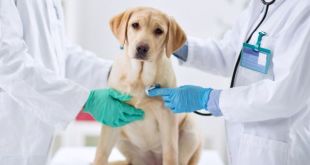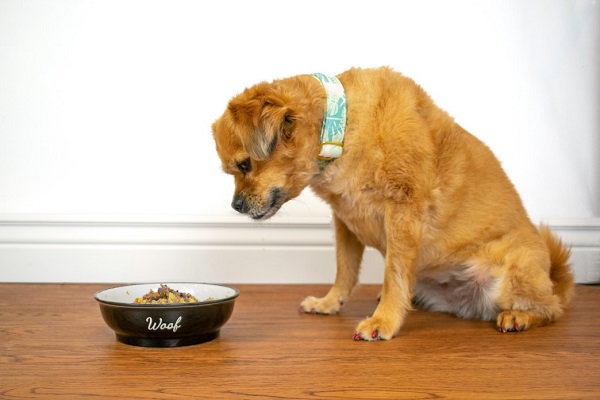Constipation is a typical medical condition in canines and refers to the inability to pass an ordinary stool regularly. Constipation can happen to any dog, but it is more common in older dogs. This is often caused by not enough electrolytes or a kidney problem. In addition, an enlarged prostate in older male dogs can also cause constipation.
Dogs that groom too often, have poor feeding habits, and eat non-food items are more likely to get blockages and constipation. In addition, a diet low in fiber, not drinking enough water, or not getting enough exercise can also lead to constipation.
This can occur for various reasons and generally can be easily fixed. However, a few canines might experience chronic constipation. This can prompt obstipation, where the stool becomes drier, more complex, and compacted, and the dog can’t poop.
What Are the Signs and Symptoms of Dog Constipation?
The signs of constipation are pretty obvious, including:
- Lack of defecation for a few days;
- Hard, dry stools that feel like pebbles when you pick them up.
Two other signs of discomfort are associated with constipation, including:
- Tenesmus, which includes straining to defecate with little or no result or producing small amounts of liquid fecal matter mixed with blood;
- Dyschezia, which is painful or difficult defecation.
Symptoms of dog constipation include:
- Lack of defecation for a few days
- Hard, pebble-like stool
- Straining without producing much stool
Discomfort
- Painful defecation
- Difficult defecation
- Mucus with stool
- Bloody stool
The purpose of the colon is to store waste, and it can keep it for several weeks. Therefore, you may feel alarmed if your dog hasn’t passed a stool in a few days. This may not be a problem, though. You may only need to wait a few more days.
What Causes Constipation in Dogs?
In ordinary digestion, waste is full of water and electrolytes as it is pushed through the digestive tract to the colon by an automatic muscular motion called peristaltic waves. The water is absorbed in the colon, and the waste is moved out as a stool.
If this process becomes slow or impaired, the colon will absorb water, and the stool will become more complex, drier, and possibly compacted.
Some of the most common causes of constipation in dogs include:
- Lack of exercise
- Poor diet
- Not enough fiber
- Blockages from eating non-food items like garbage, bones, gravel, or plants
- Too much self-grooming leads to hair collecting in the stool
- Age
- Hypothyroidism
- Renal issues
- Enlarged prostate
- Anal gland problems
Dehydration
- Spinal injury
- Certain medications
- Surgery
- Stress
- Tumors
- Trauma to the pelvis
- History of constipation

What To Do If Your Dog Is Constipated?
If the issue has recently begun—no more than a day or two—a couple of home remedies may get things moving again. Call your veterinarian before adding supplements, and remember that no strategy works for all canines. But some of the old – standbys for treating constipation include –
-
- Pumpkin – Weirdly, this dietary fix works in certain canines for either constipation or diarrhea. It is high in fiber and moisture; many pups like the taste, so they’ll cheerfully take this medication. There are a few recipes for tasty pumpkin treats that dogs love, even though it’s likely best to give them straight to control the intestinal system. Attempt pure canned pumpkin or pumpkin powder.
- Canned dog food – Elevated moisture content of canned food may help regulate the system.
- Powdered fiber supplements
- Food and herbs, like ginger, wheat bran, powdered psyllium seeds, and olive oil, may help. A recent report investigating treatments for constipation in humans showed that fig paste was decisive for treating constipation in their research colony of Beagles. Food that helps people with the issue is likely fine for canines, yet it generally is better to check with your vet.
- Hydration – Ensure your dog can access fresh water and electrolyte supplements.
- Exercise
When To Take a Constipated Dog to the Vet?
It’s a smart thought to call the vet when you become aware of the issue. Constipation can be an indication of some intense sicknesses.
Long-term or chronic constipation may prompt the development of dried fecal matter that gets stuck in the colon, known as obstipation. This might add to one more condition set apart by an inability to poop usually — megacolon. The colon becomes expanded and loses its capacity to move feces along. Persistent constipation is both a contributor and an indication of this problem.
When you visit the vet, make sure you come armed with as much information as possible, including:
- The last time your dog had a normal bowel movement
- Stool color and consistency
- Changes in the dog’s diet or routine
- Non-food items the dog may have eaten (this can include anything from bones to kitty litter)
- Straining or pain while trying to go
- Drug treatments
- Injuries
- Other signs of distress or discomfort, especially vomiting, lethargy, or a bloated appearance.
- Depending upon the duration and severity of the symptoms, the veterinary exam may consist of the following:
- Abdominal palpation
- Rectal exam
- Radiographs of the abdominal area
- Barium enema
- Ultrasound or colonoscopy
- Complete Blood Count
- Urinalysis
- Neurological exam
Veterinary Treatment and Prevention of dog constipation
Most cases will resolve with gentle treatments, like boosting fluids and dietary fiber or exercising more. Laxative suppositories and enemas might be helpful, but they should be used with direction from a veterinarian, especially assuming they are required for significant stretches.
More extreme cases will require such medical interventions as:
- Manual removal of impacted feces
- Drugs activate normal colon function or block the production of certain enzymes.
- Surgery may be needed in rare, extreme cases, usually for megacolon. One surgical procedure is known as a colectomy, in which sections of the colon are removed.
For most canines, constipation will be inconsistent, monitored through an even eating regimen, access to fresh water, and regular exercise.
Conclusion
Canine constipation is a common problem that requires timely attention. Understanding the causes, seeking veterinary care, and implementing appropriate treatment measures, such as dietary adjustments and increased hydration, are essential for effectively managing and preventing constipation in dogs.
 DogExpress
DogExpress






















 in Chandigarh, India.
in Chandigarh, India. 

